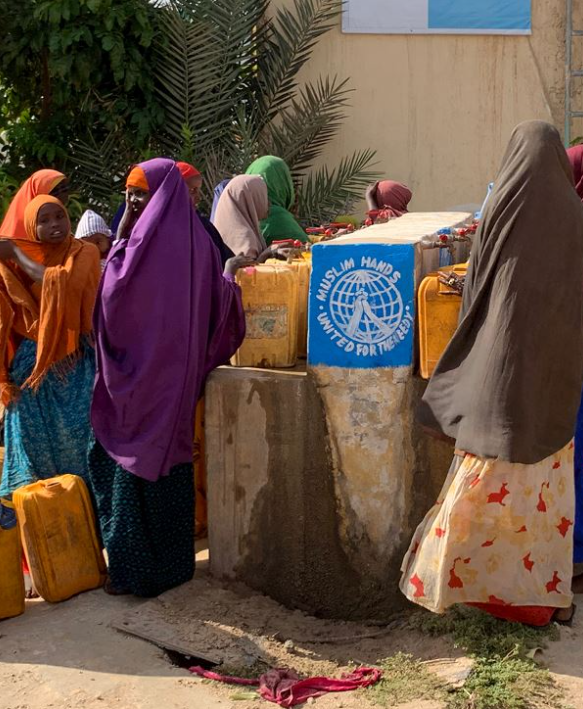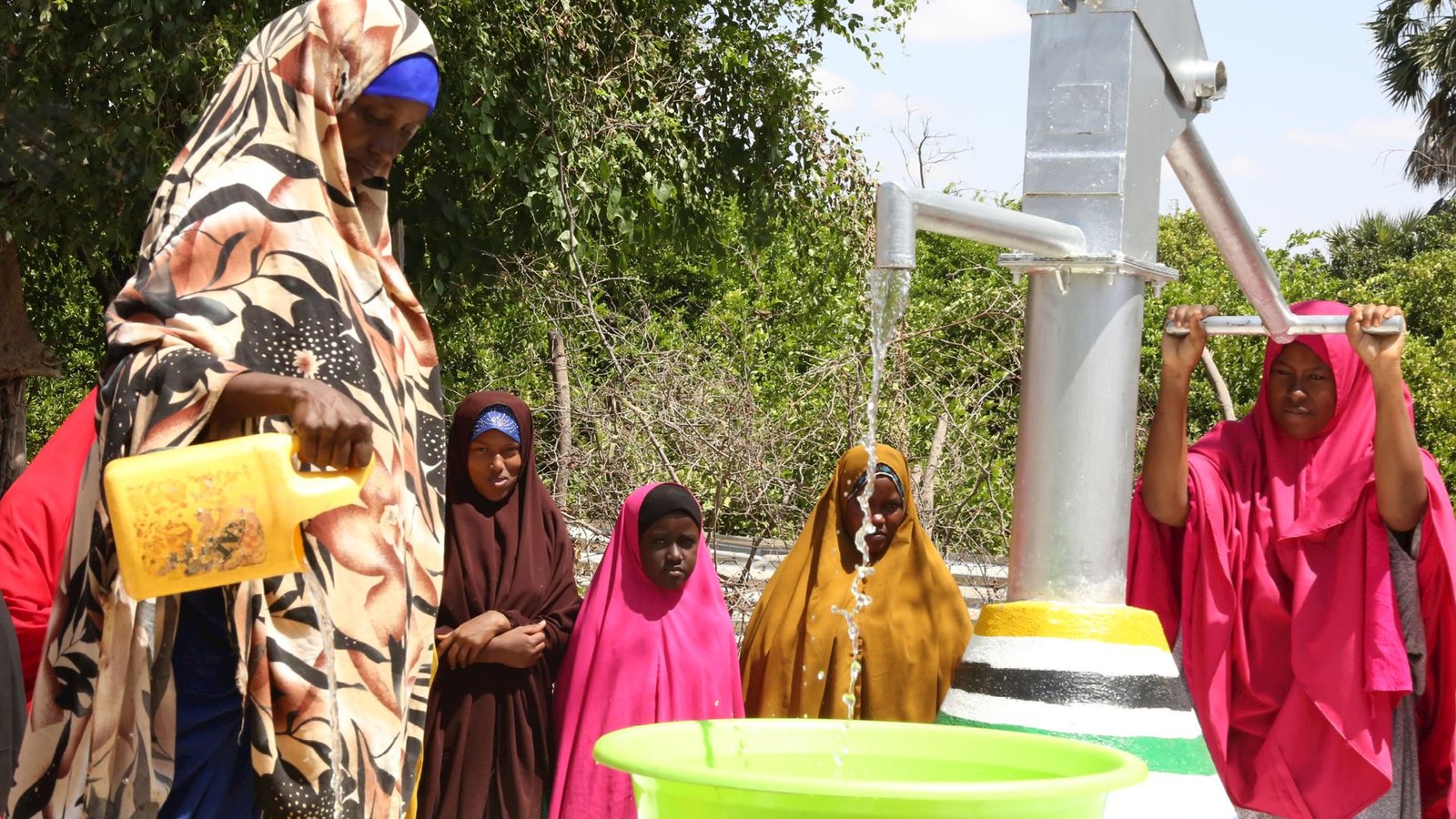WHAT WE DO IN SOMALIA
![]() Emergency Response & DRR (Disaster Risk Reduction)
Emergency Response & DRR (Disaster Risk Reduction)
![]() Health
Health
![]() Food Security
Food Security
![]() WASH
WASH
Somalia
Country Situation: In Somalia, over 60% of the population of 5.9 million people are in need of humanitarian assistance due to droughts, conflicts, poverty and food insecurity. This number of people in need is expected to rise to 7.7 million in 2022. In addition, climate change has made Somalia vastly vulnerable to recurring drought and floods. Today, vulnerable communities are facing the worst drought in over a decade. OCHA estimates that “about 572,700 people have been displaced internally by drought, more than double the people displaced during the same period in 2016/17.
Muslim Hands opened an office in Somalia in response to the 2011 severe drought that occurred in East Africa and which impacted Somalia. Since that intervention, Muslim Hands Somalia (MHS) has grown to implement programs in 14 out of 18 provinces in Somalia, addressing urgent unmet needs through projects in the fields of Food Security, Water Sanitation and Hygiene (WASH), Education, Health, Emergency Relief, and disaster risk reduction.
MHS is recently also working on building resilience against disasters and emergencies; mitigating future shocks and enhancing early recovery; and supporting families and communities to meet the challenges of long-term development, as per the Sustainable Development Goals.
Muslim Hands Somalia programs activities are carefully aligned with SDGs.
Emergency Relief and Disaster Risk Reduction
Muslim Hands Somalia teams have provided emergency food, water, medicine and shelter throughout times of crisis. MH continues to respond to Somalia’s droughts as it has in the past. In 2020-2021, MHS provided emergency humanitarian relief to 3989 beneficiaries through the distribution of food and NFIs, restarting food production through provision of agricultural inputs (farm tools and seeds to small farmers, irrigation canals rehabilitation, provision of river embankment materials to reduce the risk of floods, construction of sliding gates to control water flows, water) and healthcare services, and effectively promoting self-reliance and resilience to disasters in target communities.
Water Sanitation and Hygiene (WASH)
During 2020-2021, Muslim Hands has provided 16000 households access to safe water and sanitation by establishing good quality Drinking Water Supply Schemes (DWSS) and water boreholes. MH has also conducted training sessions on improved sanitation and hygiene practices, as well as trained target communities in participatory and sustainable O&M (Operations & Maintenance) of drinking water supply and sanitation services. This ensures community will be able to continue these interventions in the future. MH Somalia has also provided delivery of water through tankers in emergencies.
Health
There is a distinct lack of access to basic healthcare services among low-income urban and rural populations in Somalia.
To address this, Muslims Hands has over the last years supported better access to healthcare services by rehabilitation, staffing, and equipping of government health facilities. Between 2020 and 2021, 35454 people have benefited from healthcare services provided by Muslim Hands-supported health facilities, which includes an ambulance service.
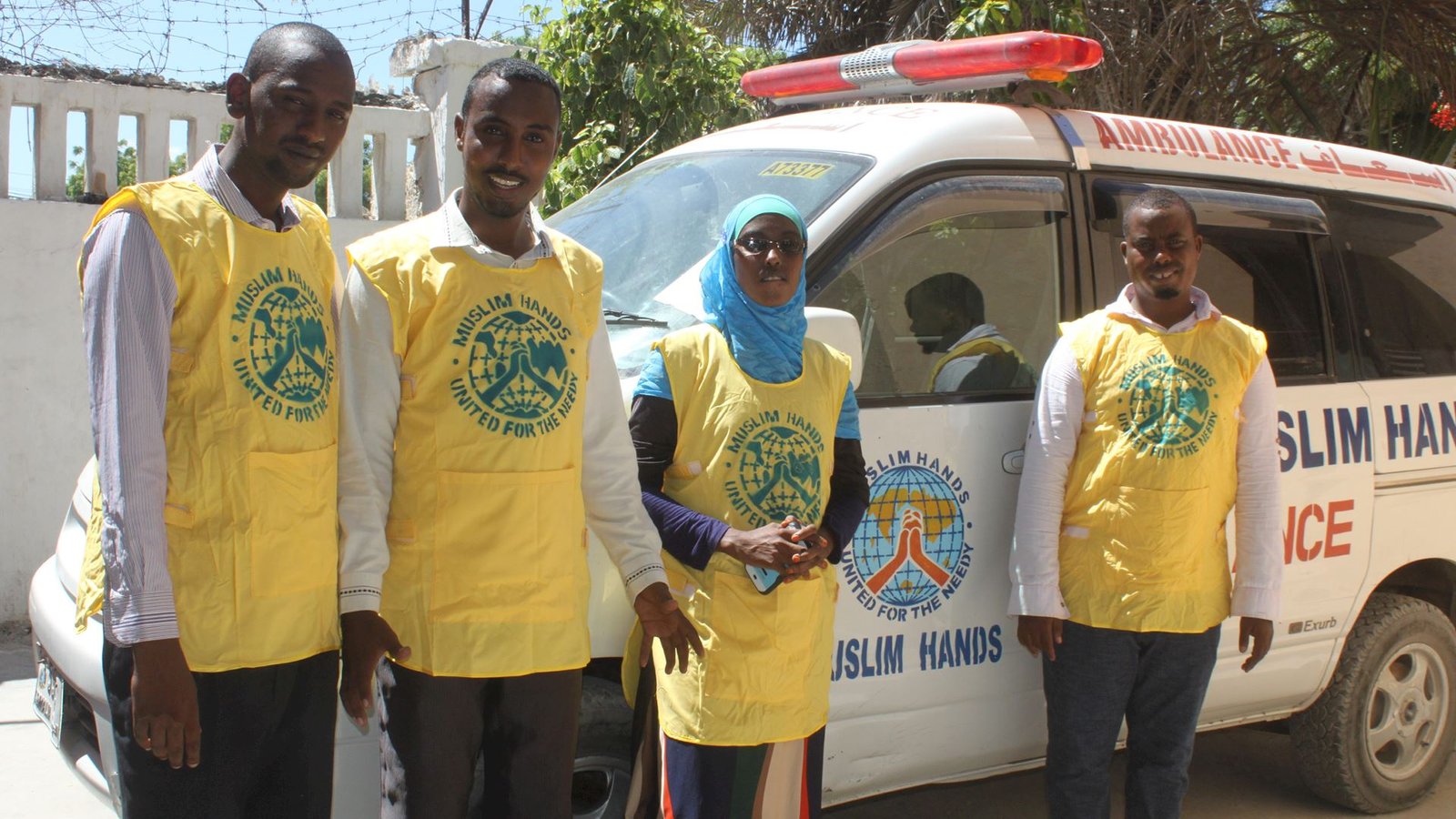
MH Somalia directly runs a maternal health clinic to reduce maternal and infant mortality.
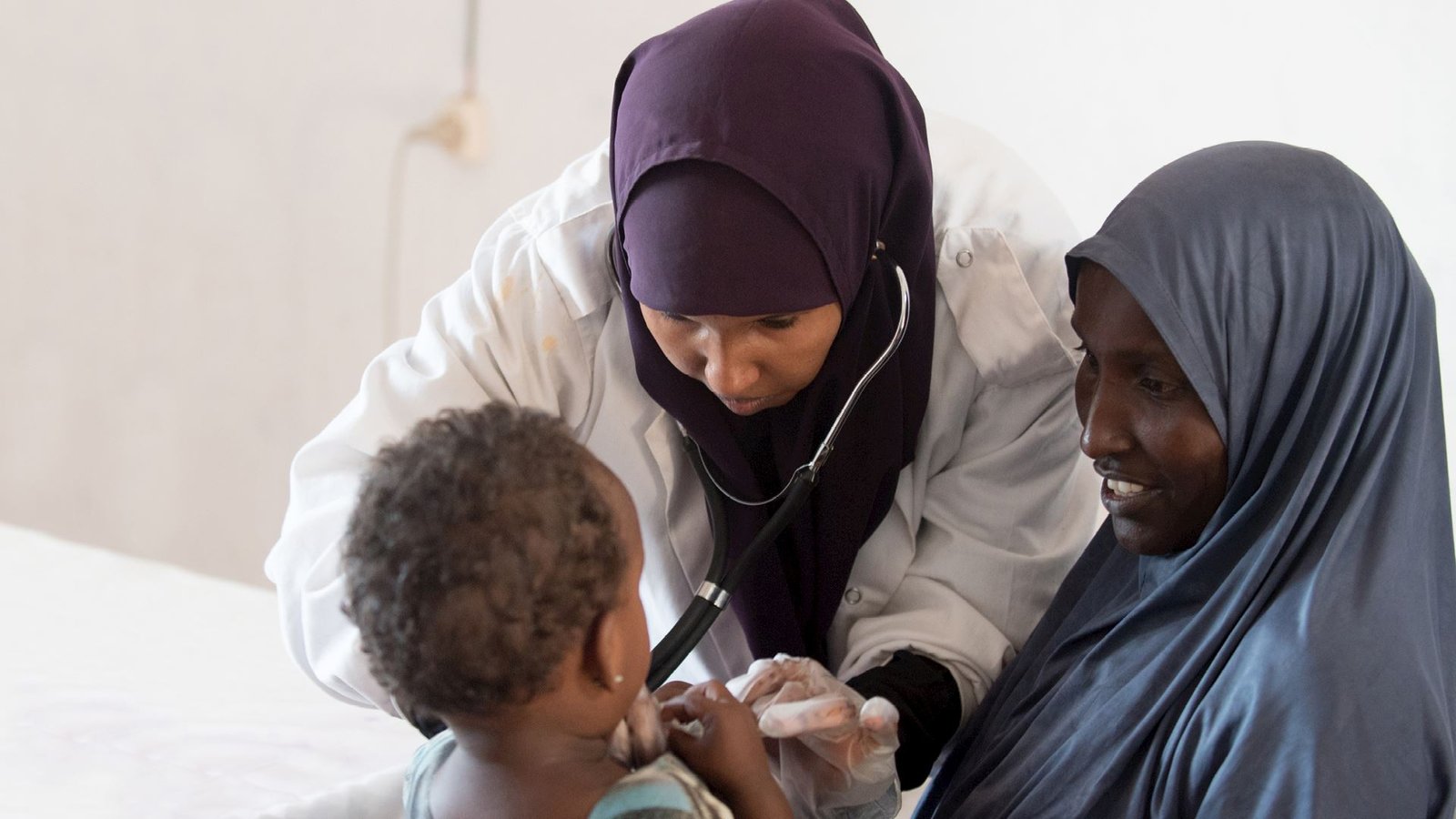
Over the last two years, Muslim Hands has undertaken information end education campaigns through participatory mass media approaches to health promotion in order to prevent the spread of Covid 19, and other communicable diseases.
Education;
Since the 1990s, and the start of the civil strife, the public schools’ system in Somalia has withered away and been replaced by private schools. In this environment, low-income households have struggled to school their children.
Muslim Hands has responded to this crisis in education by supporting the rehabilitation of schools, providing scholarships to the most consistently excluded children (orphans), teachers’ trainings and inputs to schools. Till date, 178,779 school-age children were supported in getting access to schooling in safe, child-friendly protective learning spaces. In addition, MH directly runs a school for needy children in Kaxda.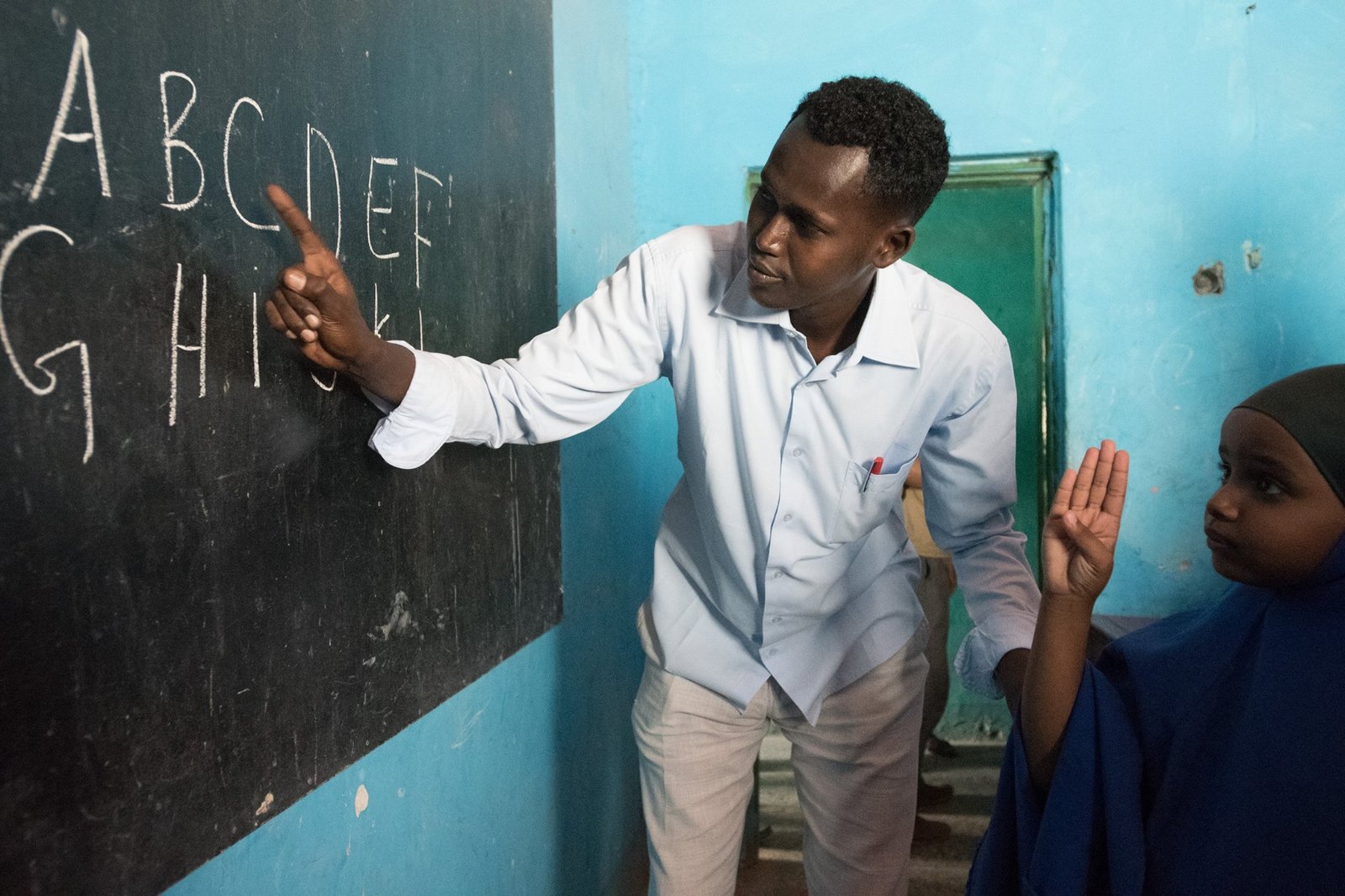
Livelihood, Poverty Reduction and Food Security
Somalia’s decades-old civil strife has combined climate change impacts to create large population displacements along with high national poverty rates, in both urban and rural settlements.
Muslim Hand Somalia’s programs in Livelihood have helped widowed women and rural families to support themselves with our vocational training schemes.
It’s efforts at Food Security have promoted the reduction of vulnerability and the building of resilience for vulnerable Somali communities through investment in public goods/infrastructures that support livelihoods improvement. MH Somalia is directly addressing production factors such as addressing agricultural inputs and equipment, and rehabilitate irrigation canals for farmers.
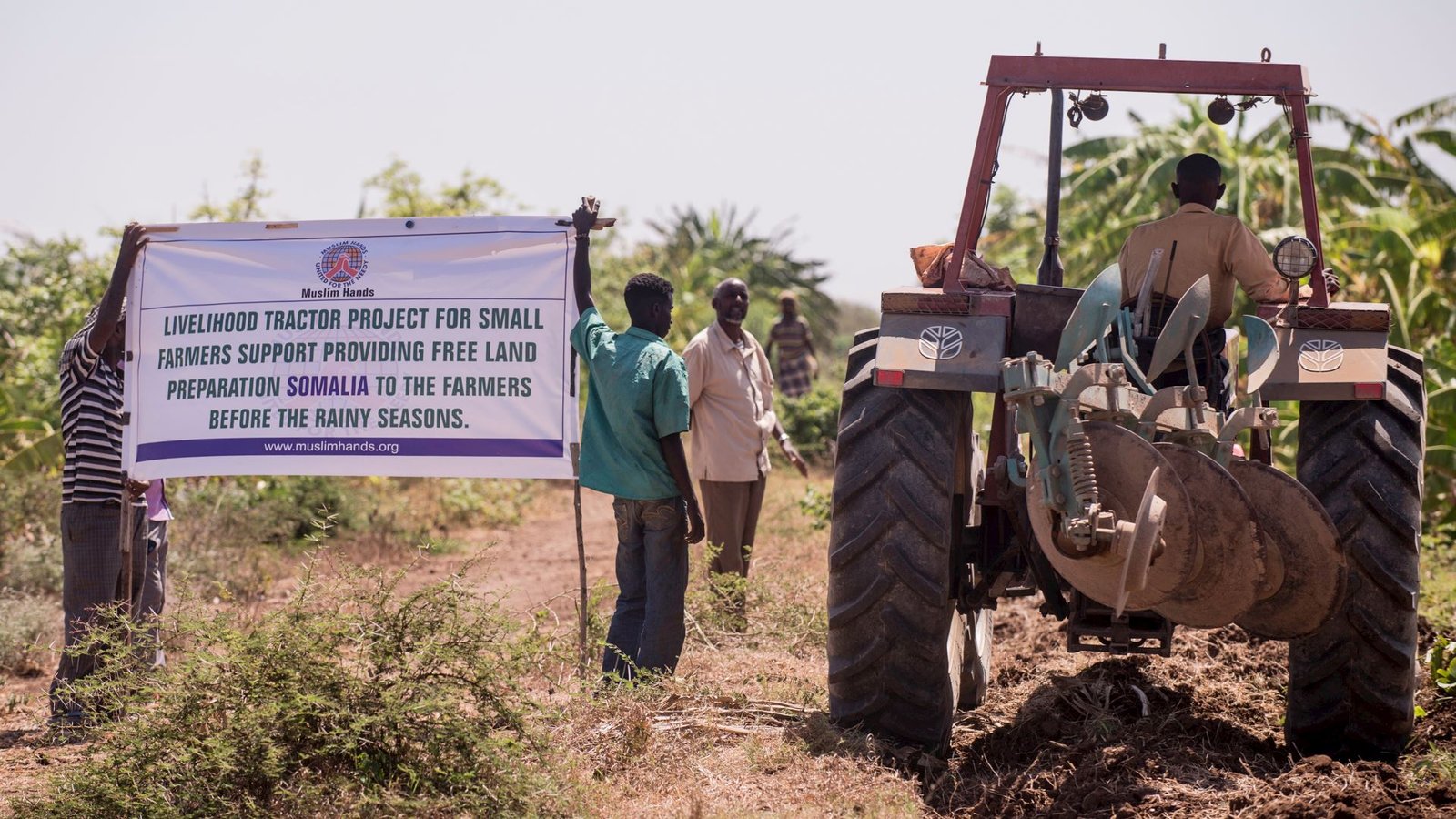
In partnership with WFP, Muslim Hands has supported the rehabilitation of irrigation canals through its FFA program. This has enhanced local resources, capabilities and increased incomes through the creation of employment for 2,982 households.

